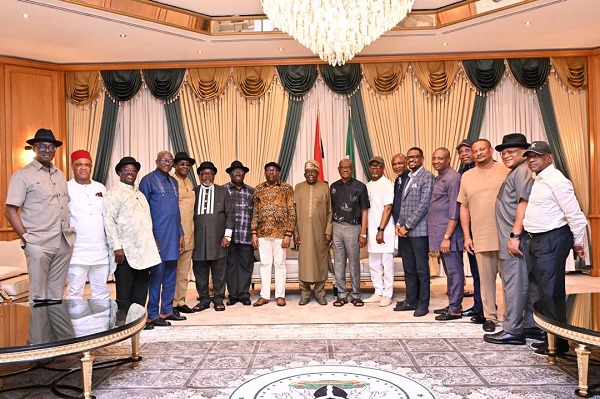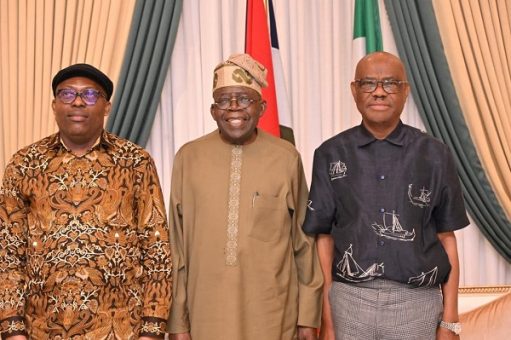In a dramatic bid to douse the flames of a deepening political inferno in Rivers State, President Bola Ahmed Tinubu on Thursday night summoned warring political heavyweights to a private peace summit at the State House in Abuja. The high-stakes closed-door meeting brought together suspended Governor Siminalayi Fubara, former governor and current FCT Minister Nyesom Wike, ousted Speaker Martins Amaewhule, and other key lawmakers entangled in a bitter intra-party war.
First reported by Presidential Adviser Bayo Onanuga via his verified X handle, the “reconciliation meeting” has been lauded as Tinubu’s most direct and decisive intervention since the crisis erupted — one that reached a boiling point earlier this year.
Tensions in the oil-rich state of Rivers had spiraled out of control, forcing President Tinubu to declare a political emergency back in March. In an unprecedented move, he suspended the governor, his deputy, and the entire State House of Assembly — a development that sparked national outrage and raised constitutional concerns.
Critics called it federal overreach; supporters insisted it was a necessary evil to prevent outright governance collapse.

While the specifics of any agreements reached during Thursday’s meeting remain shrouded in secrecy, insiders say the mere fact that political foes Fubara and Wike sat at the same table may signal the beginning of a fragile truce. Still, the true test lies not in photo opportunities but in follow-through — and whether either side is willing to compromise.
Rivers State, a critical artery in Nigeria’s oil economy, has been gripped by uncertainty since the political divorce between Fubara and his political godfather Wike exploded into the public eye. What began as policy disagreements morphed into a constitutional crisis, paralyzing governance and casting a shadow over the broader Niger Delta region.
President Tinubu’s move to mediate — while applauded by some — also raises questions about the boundaries of presidential power, especially in matters involving state autonomy and elected officials.
Analysts characterize Thursday’s dialogue as a potential turning point in the Rivers saga, but caution that any peace without transparency or broad consensus could amount to little more than a ceasefire dressed in political theater.
For now, Rivers awaits — will this be the beginning of peace, or just another chapter in a dangerous power struggle?




